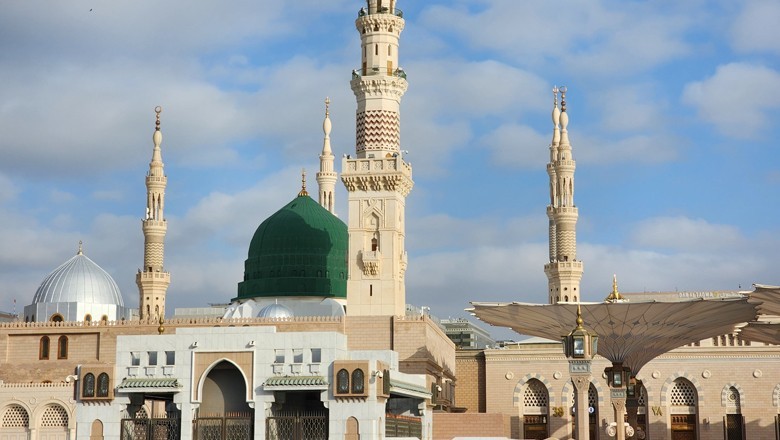Seerat-e-Nabi ﷺ” (The Life of Prophet Muhammad ﷺ) refers to the study of the life, character, and teachings of the Prophet Muhammad ﷺ, the final Messenger of Islam. It covers his noble attributes, personal habits, interactions with others, and significant events of his life, providing a comprehensive guide for Muslims to follow.
1. Early Life
- Birth: Prophet Muhammad ﷺ was born in Makkah in 570 CE, in the tribe of Quraysh. His father, Abdullah, passed away before his birth, and his mother, Amina, died when he was six years old. He was raised by his grandfather, Abdul Muttalib, and later by his uncle, Abu Talib.
- Childhood: Known for his honesty and trustworthiness, he earned the titles Al-Sadiq (the Truthful) and Al-Ameen (the Trustworthy).
2. Prophethood
- At the age of 40, while meditating in the Cave of Hira, he received the first revelation from Allah through Angel Jibreel (Gabriel). This marked the beginning of his Prophethood and the mission to guide humanity.
3. Message of Islam
- The Prophet ﷺ called people to worship Allah alone, abandon idolatry, and embrace good character, justice, and compassion.
- The early years of his Prophethood in Makkah were marked by opposition, ridicule, and persecution by the Quraysh.
4. Migration (Hijrah)
- In 622 CE, the Prophet ﷺ and his followers migrated to Madinah, where they established the first Islamic state. This event marks the beginning of the Islamic calendar.
- In Madinah, he united various tribes, built strong alliances, and laid down the foundation of a just society.
5. Major Events in His Life
- The Battles: The Prophet ﷺ participated in significant battles, such as Badr, Uhud, and Khandaq, to defend the Muslim community against aggressors.
- Treaty of Hudaybiyyah: A peace treaty with the Quraysh that demonstrated his commitment to diplomacy.
- Conquest of Makkah: In 630 CE, the Prophet ﷺ peacefully entered Makkah, forgave his enemies, and purified the Kaaba of idols.
6. Character and Attributes
The Prophet ﷺ exemplified the highest moral standards. Allah describes him in the Quran as:
“And indeed, you are of a great moral character.” (Quran 68:4)
- Kindness: He was gentle with children, compassionate towards the poor, and respectful towards women.
- Forgiveness: Even in the face of grave injustices, he forgave his enemies.
- Humility: Despite being the leader, he lived a simple life, mending his own clothes and serving his household.
7. Final Sermon
In his Farewell Sermon, delivered during his last Hajj, the Prophet ﷺ emphasized:
- Equality: “No Arab has superiority over a non-Arab, nor a non-Arab over an Arab.”
- Justice: “Return the trusts to those to whom they are due.”
- Rights of Women: “Treat your women well and be kind to them.”
- Unity: “Hold firmly to the Quran and Sunnah, and you will never go astray.”
8. Passing
The Prophet ﷺ passed away at the age of 63 in 632 CE in Madinah. He was buried in the room of his wife, Aisha (RA), where his tomb remains today in the Prophet’s Mosque.
Key Lessons from His Life
- Patience: Enduring hardships with steadfastness.
- Justice: Upholding fairness in all matters.
- Mercy: Showing compassion to all, regardless of faith or background.
- Trust in Allah: Always relying on Allah in times of ease and difficulty.

